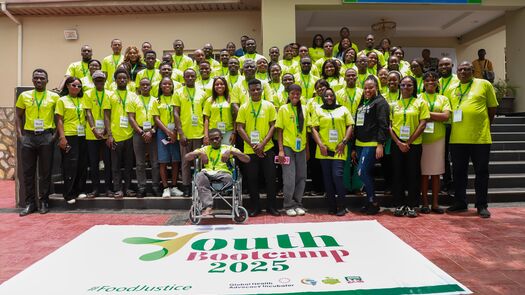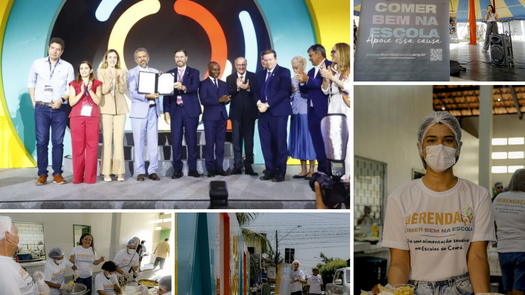November 25, 2025
 On August 20, consumers in Argentina will begin seeing front of package warning labels on products from big companies as part of the first phase of the implementation of the Health Food Promotion Law. Small and medium food and beverage companies will have until February 20, 2023 to add labels to their products. These warning labels will inform consumers on what products are high in sugar, calories, sodium and total fat.
On August 20, consumers in Argentina will begin seeing front of package warning labels on products from big companies as part of the first phase of the implementation of the Health Food Promotion Law. Small and medium food and beverage companies will have until February 20, 2023 to add labels to their products. These warning labels will inform consumers on what products are high in sugar, calories, sodium and total fat.
Last year, Argentina’s president signed one of the world’s strongest and most comprehensive health food policy laws. It requires ultra-processed products with excess levels of sodium, sugar, fats and calories to include black octagons on the front of the package. It also includes a mandatory declaration of sugar on the food label, the regulation of health claims (no claims are allowed on products that have warning labels), and the regulation of food marketing and school environments.
Luciana Castronuovo from FIC Argentina, Maga Ailén Merlo Vijarra from FUNDEPS and the Global Health Advocacy Incubator (GHAI) Food Policy Argentina coordinator, Evelyn Gitz, answered questions about the warning labels and why this is such an important public health milestone in Argentina.
Why is this moment so significant?
Luciana: For us, this moment is the time when people in Argentina will start to have the chance to know what they are eating. August 20 is the date when Argentina will take a step towards guaranteeing the rights to health and access to healthy food. Civil society organizations have been advocating for this law for more than four years and it is very significant for all of us to finally see it implemented.
Evelyn: Starting this Saturday, package labels of ultra-processed products must report excess sugars, fats, calories, and sodium in the foods and beverages according to the Healthy Food Promotion Law that regulates the front of package labels (FOPL) and that was enacted in November 2021. Although the implementation will be gradual since small and medium-sized companies will have more time, we will finally be able to begin to see the warning labels on the packages and see the results of all the work that civil society has been doing.
What will civil society be looking out for?
Maga: This is a comprehensive law that needs the joint work of key stakeholders all over the country to achieve advances on its implementation. As civil society, we will be facing many challenges that can be classified in two main areas: challenges regarding implementation in Argentina and challenges related to communication these advances to the public. In the coming months we will be working on disseminating key information about the law and the need for this public health strategy and we will also focus on the human right to healthy food. Regarding implementation, there are many challenges ahead, such as the access to information about extensions, understanding which companies have extensions approved, so we can better understand which product will have labels in the following days. Another challenge is the regulation of food marketing and school environments.
Luciana: Civil society will be monitoring the implementation process. The comprehensiveness of the law and our Constitution pose significant challenges for the implementation: different Ministries, dependencies, and levels of government must take part of the implementation. Civil society organizations will not only oversee the implementation process but also will work towards exposing possible food industry interference.
What can we expect to see next in Argentina?
Evelyn: Starting August 20, large food and beverage company displayed in supermarkets must have a FOPL that warns the consumer about the excess of critical nutrients (sugars, total fats, saturated fats, calories and sodium) and also should have the precautionary legend those that contain sweeteners and/or caffeine. Small and medium-sized businesses will have more time (until 20 February 2023) to incorporate the FOPL. Those products with an excess of critical nutrients will not be able to include advertising aimed at children and will be prohibited from being sold and advertised in schools.
Maga: We expect to see more labels as the deadline arrives. We also expect more informed citizens who can make better purchasing decisions and at the same time we hope that companies will modify some of their food products. Likewise, in the coming months we expect to better protect Argentinean children and adolescents from abusive marketing strategies employed by the food industry, leading to a safer and healthier environment to develop and grow. We want to find ourselves and all the civil society organizations that have been working on this more organized than ever, ready to mobilize and advocate at national and regional levels.
This moment is a victory for civil society organizations in Argentina and around the world – for those that tirelessly advocate to get policies like these passed and implemented to improve the health of society.



